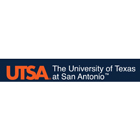- News and articles
- Find usIDP AustraliaIDP BahrainIDP BangladeshIDP CambodiaIDP CanadaIDP ChinaIDP EgyptIDP GhanaIDP Hong KongIDP IndiaIDP IndonesiaIDP IranIDP JordanIDP KenyaIDP KoreaIDP KuwaitIDP LebanonIDP MalaysiaIDP MauritiusIDP Middle EastIDP NepalIDP New ZealandIDP NigeriaIDP OmanIDP PakistanIDP PhilippinesIDP Saudi ArabiaIDP SingaporeIDP Sri LankaIDP Taiwan, ChinaIDP ThailandIDP TurkeyIDP UAEIDP VietnamIDP Corporate
- Social
- English
- Where we operate
- Courses
- Scholarships
- IELTS
- About IDP
- Student Essentials
- News and articles
- Find us
- Find us
- Find nearest IDP offices
- IDP Australia
- IDP Bahrain
- IDP Bangladesh
- IDP Cambodia
- IDP Canada
- IDP China
- IDP Egypt
- IDP Ghana
- IDP Hong Kong
- IDP India
- IDP Indonesia
- IDP Iran
- IDP Jordan
- IDP Kenya
- IDP Korea
- IDP Kuwait
- IDP Lebanon
- IDP Malaysia
- IDP Mauritius
- IDP Middle East
- IDP Nepal
- IDP New Zealand
- IDP Nigeria
- IDP Oman
- IDP Pakistan
- IDP Philippines
- IDP Saudi Arabia
- IDP Singapore
- IDP Sri Lanka
- IDP Taiwan, China
- IDP Thailand
- IDP Turkey
- IDP UAE
- IDP Vietnam
- IDP Corporate
- Social
- Language Switcher
- IDP Education /
- Colleges and Universities /
- United States /
- University of Texas - San A... /
- Bachelor of Science in Neur...


Location
United States
Qualification
Bachelor Degree
Fees
USD23739
(2025)
Duration
8 Semester(s)
Next intake
27 May 2025
Entry Score
6.5
IELTSCourse info
Internships allow you to obtain work experience, explore a chosen career path and increase your marketability to employers. Students can access Handshake, UTSA's jobs portal, to search for jobs and internships and recruiting and event information. UTSA's Career Center has a COS career counselor who provides internship opportunities and advice to students across every science major.
The Department of Neuroscience, Developmental and Regenerative Biology, within the B.S. in Neuroscience degree, offers three areas of concentration. To declare a concentration or obtain advice, students should consult an undergraduate academic advisor in the Life and Health Sciences Advising Center. To receive credit for a concentration, students must successfully complete all requirements for the B.S. degree, along with the requirements for the respective concentration. Students who do not successfully complete all courses of a given concentration area will receive a standard B.S. degree in Neuroscience.
- Scholarships View all scholarships
- Internships
Course fees are indicative and should be used as a guide. to get an accurate price.
Duration: 8 Semester(s)
Fees: USD23739
| Intake | Location |
|---|---|
| Fall (August), 2025 | San Antonio |
| Summer (May), 2025 | San Antonio |
Entry requirements for University of Texas - San Antonio
Application Deadline
The application deadline isn't available Speak to an IDP counsellor for more detailed information
Further information
If you aren't eligible for the above entry requirements, you might ant to explore pathway options at University of Texas - San Antonio. If you want to find out more, speak to our counsellors.
THE World Ranking
601st / 1250
THE World RankingWhat our students think
We’ve haven’t received any reviews for this institution yet.
Recommended for you
- Advanced Certificate
- Walnut , United States
- Next intake:06/2025
- Entry Score: IELTS 4.5
- USD12510 (2025)
- Associate Degree
- Walnut , United States
- Next intake:06/2025
- Entry Score: IELTS 4.5
- USD12510 (2025)
- Associate Degree
- Walnut , United States
- Next intake:06/2025
- Entry Score: IELTS 4.5
- USD12510 (2025)
- Associate Degree
- Glendale , United States
- Next intake:06/2025
- Entry Score: IELTS 4.5
- USD7800 (2025)
- Associate Degree
- Irvine , United States
- Next intake:05/2025
- Entry Score: IELTS 4.5
- USD10944 (2025)
- Associate Degree
- Irvine , United States
- Next intake:05/2025
- Entry Score: IELTS 4.5
- USD11808 (2025)
- Associate Degree
- Glendale , United States
- Next intake:06/2025
- Entry Score: IELTS 4.5
- USD7800 (2025)
- Advanced Certificate
- Irvine , United States
- Next intake:05/2025
- Entry Score: IELTS 4.5
- USD11808 (2025)
Your action plan
Step 1
Shortlist your courses
Choose the best three courses you’re most likely to pursue.
Step 2
Check your eligibility
Get an instant in-principle offer for courses with the IDP FastLane tag.
Step 3
Apply through IDP Live
Fill out the form once and use it to apply to multiple courses.
How does IDP FastLane work?
With the FastLane 'Offer in Principle', you'll know in minutes if you'll be accepted!
Select an institution and course
Create your academic profile
Submit your application for an 'Offer in Principle'
Your chosen institution(s) will send you a decision in minutes!
Get ready to apply with an expert counsellor




